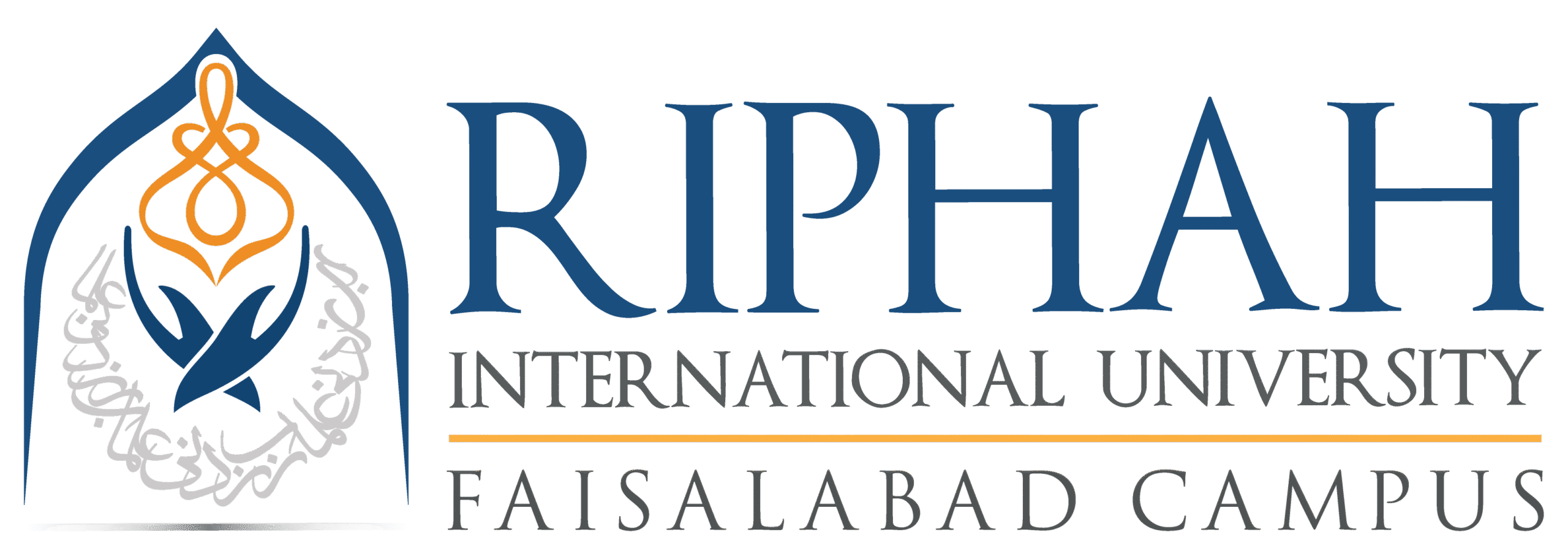Research Ethics & Plagiarism Policy
1. Purpose & Scope
Riphah International University, Faisalabad, is committed to promoting a culture of academic integrity, ethical research, and originality in all scholarly work. This policy applies to all students, faculty, and researchers involved in academic assignments, theses, dissertations, publications, and funded research projects.
2. Guiding Principles
- Research must uphold Islamic values, truthfulness, and fairness.
- All scholarly work must be conducted with honesty, transparency, and accountability.
- Plagiarism, fabrication, falsification, or misrepresentation of data is strictly prohibited.
3. Plagiarism Definition
Plagiarism is the use of another person’s ideas, words, or work without proper acknowledgment, whether intentional or unintentional. This includes:
- Copying text, images, or data without citation.
- Submitting someone else’s work as your own.
- Reusing your own previous work without disclosure (“self-plagiarism”).
- Paraphrasing without proper attribution.
4. Acceptable Similarity Index
- For student research work: Less than 19% total similarity (as per HEC guidelines).
- No single source should contribute more than 5% similarity.
- All work will be checked using Turnitin or other plagiarism detection software.
5. Ethical Research Practices
- Obtain all necessary ethical approvals before conducting research involving human or animal subjects.
- Maintain accurate and complete records of data collection and analysis.
- Acknowledge all sources, collaborators, and funding bodies.
- Ensure transparency in methodology and findings.
6. Consequences of Violations
Depending on the severity, penalties may include:
- For Students:
- Rejection of the assignment/thesis.
- Failure in the course.
- Suspension or expulsion for repeated offenses.
- For Faculty/Researchers:
- Retraction of published work.
- Withdrawal of research funding.
- Termination of employment in severe cases.
7. Complaint & Investigation Process
- Any suspected plagiarism will be reported to the Plagiarism Standing Committee.
- The committee will review the case, hear from involved parties, and make a recommendation to the Vice Chancellor.
- Decisions will be documented and communicated to all relevant stakeholders.
8. Awareness & Training
- Mandatory plagiarism awareness sessions for all new students and faculty.
- Training workshops on citation styles, academic writing, and research ethics.
